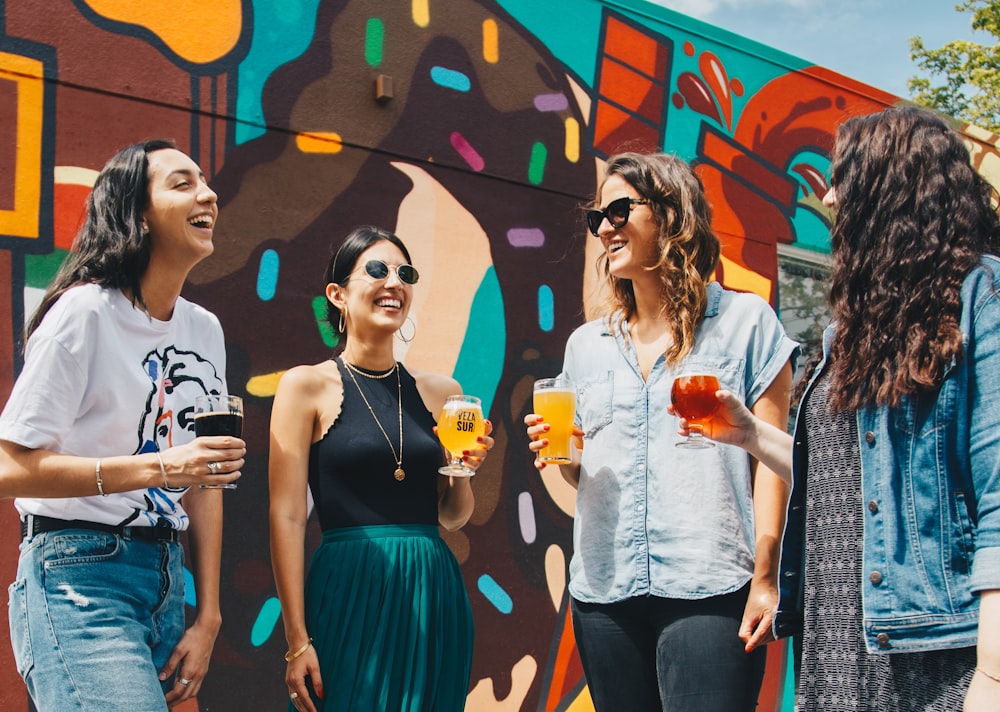
No one could deny that the current coronavirus outbreak has had an impact on everyone, at every age, on every level of society. From nursery schools to care homes, no generation has been spared some degree of upheaval. Perhaps it is unfair then, or certainly unhelpful, to suggest anyone's suffering is greater or we should have any more sympathy for a group who have youth and -in most cases at least- strength on their side. But our young people have consistently drawn the short straw at the hands of a government more concerned with placating the baby boomers that form the majority of their voting base. What's more, millennials and Gen Z have grown up with a sense of existential dread hanging over them - first the recession, the ever present threat of climate change, and just when we thought we were starting to get to grips with that a global pandemic hits. We're itching to get out there and make our mark on the world, but the kind of world we may be left with after this raises the question: what did we do to deserve this?
Firstly I must of course stress that no one has sacrificed more than the victims of this disease, their grieving friends and family and the heroes of our health service that continue to show up in spite of the risks - we absolutely salute you. Leaving aside those at the business end of the pandemic though, the general populace have for the most part submitted to stringent lockdown measures, even if for us it meant abandoning our blossoming careers, our hopes and dreams, and our independence and moving back in with our parents. Some of us on the brink of leaving have been forced into accepting that it may be unfeasible for a good while yet if the economy continues to tank and the job market continues to shrink. But surely this is nothing more than blatant selfishness, enouraged by the development of a youth mentality that expects everything to be available on tap? In fact, if we look at the projections before coronavirus the outlook for young people was pretty bleak: extortionate house prices (with renting not exactly being a cheap option either), student debt taking years to pay back, and our actual planet showing all the signs of, to put it mildly, not being in the best shape. Add the current situation into the mix and one can understand why we might feel a bit fed up.
Many of us feel as if we are under house arrest at the moment. Correct me if I'm wrong, but isn't settling down and having children a bit like that anyway? Being stuck at home with small children may not be a walk in the park (although I believe those are allowed now for all those parents tearing their hair out inside) but life for them does not appear, at least on the surface, to be drastically different. People may have been furloughed or forced to work from home, frustrating for some certainly, or perhaps a welcome rest from the rat race for others. On the other side of the spectrum, older people forced into isolation are undoubtedly experiencing severe loneliness, and it would be impossible not to feel sympathy for those trapped alone without friends or family. However pensioners are 34 times more likely to die from COVID 19 than working people, and age is one of the biggest indicators of whether or not a patient will succumb. Maybe keeping 'anyone over 60 inside' would be a step more reminiscent of a police state than a clueless Tory government, but when statistically our chances of survival are very good and when we feel the summer of our lives slipping away from us, it can be hard to recreate the positive 'at least we're all in this together' vibe.
What about the future? For those just starting/leaving university, without stable jobs or a comfortable bank balance, it may a case of just take what we can get. This is hardly a new phenomenon, given our increasing reliance on a gig economy; nevertheless there are fears that today's graduates will be forced to jump from one freelance position to another, lacking job security and struggling to build a reputation. An entrepreneurial mindset may suit some professions, but for many a £30,000 degree was supposed to be a safe alternative to this. On the other hand, the possibility of a housing market crash might seem attractive for those looking to get on the property ladder, but how long before any of us are in a position to reap these benefits - in other words how long before leaving our own front doors stops seeming like a great risk?
We are supposed to be the generation of change. The ones who righted the wrongs of those who came before us, shaped by their mistakes and ready to fight injustice and get our priorities straight. We take to the streets, we try to make it right, even in the face of a deadly disease. I truly do have hope that our current young people are prepared to rise to the challenge of adapting to life in a very different world than their parents may have grown up in. If the Black Lives Matter protests sweeping across the globe are anything to go by, we have a chance of really making society change for the better - if we could get anyone to stop going on about protester social distancing that is. Not to mention these are, according to our elders, meant to be the best years of our lives. No wonder then that dealing with coronavirus and its effects has riled us just a little bit - and we can't even go to the pub with our mates to commiserate.
Comments
Post a Comment